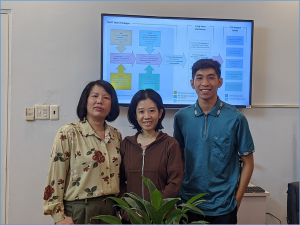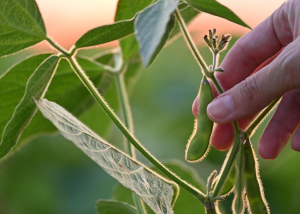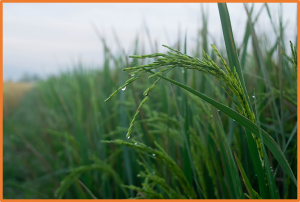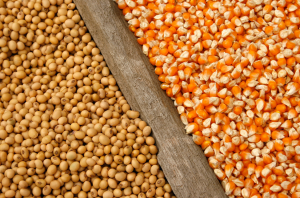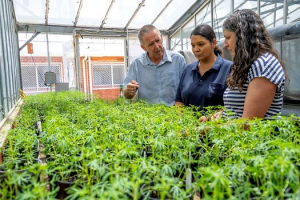The CGIAR Research Initiative on Sustainable Healthy Diets through Food Systems Transformation (SHiFT) and the Hanoi University of Science and Technology are pleased to announce the awardees of the 2024 student grant scheme. The purpose of the grant is to enrich master’s-level research projects on topics related to sustainable healthy diets, the food environment, and/or food systems in Viet Nam. Each winner receives US$4,000 to support data collection and fieldwork for their master’s thesis.
Researchers from China used CRISPR on soybeans to boost yield in temperate regions. Their strategy may also be used to introduce essential traits like disease tolerance in crops. Soybean needs a long period of darkness and is restricted to a narrow range of latitudes to grow. When it is planted in temperate regions, the soybean's flowering and maturity are delayed, which severely affects harvest time.
In a new decree presented on March 18, 2024, Uruguay's Ministries of Environment and Livestock, Agriculture and Fisheries announced that they will work together in the analysis of the New Genetic Improvement Techniques applicable to products or organisms, linked to agriculture, aquaculture, or forestry production and their derived products.
The CGIAR Initiative on NEXUS Gains convened a three-day workshop in Maputo, Mozambique, on “Transboundary multistakeholder platforms (MSPs) and the Incomati Basin.” The objectives were to learn from the experiences of other MSPs in shared basins throughout Africa; identify the role of an MSP in the Incomati Basin and how one could be incorporated within the existing governance structure; and clarify how to build on the capacity of existing stakeholder activities in the three countries of the basin.
Researchers in Australia are conducting contained field trials of genetically engineered (GE) clover with high levels of condensed tannins. The research aims to reduce methane emissions from livestock by 20% and eliminate bloat risk from consuming clover. One of the main challenges in the research was the growth penalty of inserting the gene for tannin production. The researchers are working on finding an acceptable level of tannins while maintaining the growth and development of the plants.
A study published in Plant, Cell & Environment demonstrates the potential of breeding chilling-tolerant rice by editing the OsEIL2 gene in rice. Low temperatures can significantly affect rice growth and productivity. Thus, the study also explores the OsEIN2-OsEIL1/2 pathway in increasing rice tolerance to low temperatures.
Study Models Future Effects of Climate Change on US Corn and Soybean Yields, Production, and Exports
A recent study conducted by the U.S. Department of Agriculture (USDA) Economic Research Service (ERS) modeled how climate-linked changes in temperatures and precipitation might affect future U.S. corn and soybean yields and what that would mean for markets and trade through the middle of the next decade. The study used 2016 as a base year, and the model estimated an increase in U.S. corn yields but a decrease in soybean yields by the year 2036.
Yield10 Bioscience, Inc. announced that the U.S. Department of Agriculture Animal and Plant Health Inspection Service (USDA-APHIS)'s Biotechnology Regulatory Services (BRS) has determined that Yield10's Camelina sativa (Camelina) varieties developed using genetic engineering to produce omega-3 fatty acids are not subject to the regulations under 7 CFR part 340, and may be grown and bred in the United States.
Lupin experts from the Western Australia Department of Primary Industries and Regional Development (DPIRD), Murdoch University, Curtin University, and Australian Grain Technologies (AGT) commenced a 5-year project to develop the germplasm and pinpoint resistance genes to major diseases of narrow-leafed lupins (NLL): phomopsis, cucumber mosaic virus (CMV), anthracnose, and sclerotinia.
Researchers from Baylor College of Medicine discovered that the removal of the CAX1 gene increases the low-oxygen stress tolerance of Arabidopsis under flooding conditions. The findings of their study are published in Plant, Cell & Environment. Overwatering plants can be just as detrimental as underwatering them.


 Curently online :
Curently online :
 Total visitors :
Total visitors :
